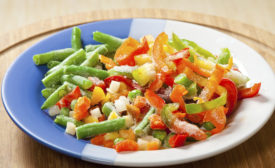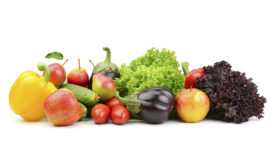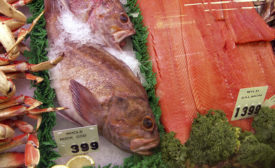Food Safety
Study: Less food wasted when using frozen produce
The study, conducted within CARVE's public-private partnership, shows that using frozen foods might reduce consumers’ food waste.
August 4, 2017
Poll on product date labels shows consumer confusion
The poll findings illustrate that the current range of variations of date labels such as “best by,” “use by,” “sell by,” and “use or freeze by” is problematic for consumers to decipher what each of these different labels mean.
July 25, 2017
Study: Safer meat requires reducing risks where food animals are raised
A variety of pre-harvest interventions can significantly reduce the risk that bacteria harmful to humans will infect food animals.
July 24, 2017
Researchers explore solutions to food waste with USDA-funded project
The first project will test online marketplaces and mobile apps.
July 20, 2017
Researchers use strip of fabric to find the freshness of oranges
The study showed the coated fabric can soak up the chemical compounds in the juice of an orange to show the ripeness – or freshness – of the fruit.
June 15, 2017
True cost accounting pilot reveals hidden impacts of food, people
This study study calculated the cost of water pollution, pesticide exposure, greenhouse gas emissions and soil erosion for several types of produce.
June 13, 2017
Report highlights role of sustainable seafood certification
The MSC report shows that 94% of fisheries entering the MSC-certified program have made at least one improvement to achieve or maintain certification.
June 1, 2017
Smithfield Foods’ sustainability report showcases commitment to producing safe, high-quality food
The report provides extensive information about Smithfield’s leading food safety and quality initiatives and certifications.
May 16, 2017
Elevate your expertise in refrigerated and frozen foods with unparalleled insights and connections.
Get the latest industry updates tailored your way.
JOIN TODAY!Copyright ©2024. All Rights Reserved BNP Media.
Design, CMS, Hosting & Web Development :: ePublishing








